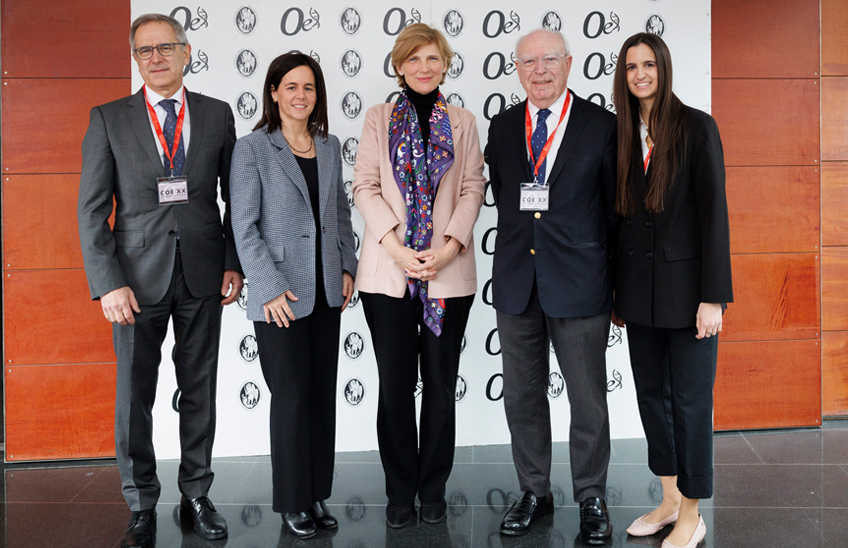The "omics" sciences, protagonists in the international symposium on nutrition and epidemiology organised by the Universities of Navarra and Harvard
The goal of the research is looking for biomarkers that link food intake with the development of chronic diseases.

21 | 06 | 2022
"The main goal of this research that we have been developing collaboratively for 10 years on both sides of the Atlantic is to search for objective biomarkers of food intake and analyze their relationship with chronic diseases such as cardiovascular disease or diabetes subject 2", explains Full Professor of Preventive Medicine and Public Health of the University of Navarra and Full Professor visiting(Adjunct Professor) at Harvard, Professor Miguel Ángel Mártinez González.
Along with Professor Martínez González, the symposium was chaired by Frank B. Hu, Full Professor and director of department of Nutrition at Harvard TH Chan School of Public Health and researcher issue five in the recent world ranking of Top Medicine Scientists. Professor Hu, in his discussion paper Dietary Biomarker Development and Validations, outlined how "the last two decades have seen an exponential increase in epidemiological programs of study focused on the search for biomarkers of food intake." "The analysis of these biomarkers in epidemiological programs of study has changed the paradigm of the traditional black box of epidemiology," he added.
Professor Martínez-González explained that "the identification of multiple molecules in body fluids, such as urine and blood, allows us to assess normal or disease-prone states. These multimolecular metabolic signatures also reflect the body's response to nutritional intervention.
Also researcher of the CIBEROBN, Miguel Ángel Martínez González said: "Traditional epidemiology perhaps did not give the importance it deserved to the underlying biological mechanisms by associating nutrition with the development of a disease. Omics-based epidemiology has arrived to open that 'black box'. Thanks to metabolomics, epidemiology is on a stronger path to identify medical and controlled interventions that can make a substantial contribution to disease prevention and thus can achieve major public health benefits.
The lectures at position of the ten experts who participated in the congress can be viewed at the YouTube channel School of Medicine. campus Experts from institutions such as the Broad Institute of the Masschusetts Institute of Technology (MIT) and Harvard, the International Agency for Research on Cancer of the WHO, the International Agency for Research on Cancer of the WHO, the Institut Hospital del Mar d'Investigacions Mèdiques (IMIM) and the University of Navarra, participated in the symposium, the Institut Hospital del Mar d'Investigacions Mèdiques (IMIM), the Universidad Autónoma de Madrid (UAM), Tecnun - School of Engineering of the University of Navarra, the Centro de Investigacion Biomédica en network - Fisiopatología de la Obesidad y Nutrición (CIBEROBN) and the high school de research Sanitaria de Navarra (IdiSNA).




